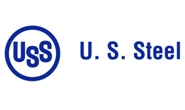Market Data

June 16, 2020
U.S. Steel’s “Sustainability” Efforts Go Beyond the Environment
Written by Tim Triplett
The term “sustainability” is most often associated with environmentalism. True to the word, U.S. Steel’s 2019 Sustainability Report details the steelmaker’s mission to reduce its global greenhouse gas (GHG) emission intensity by 20 percent over the next decade. But what makes a company’s success “sustainable” over the long term goes far beyond environmental considerations, said U.S. Steel President and CEO David Burritt. The recently released report delves deeply into the many aspects that define sustainability at U.S. Steel: safety, governance, ethics, innovation, environment, people and community. “We have sustained our business for nearly 120 years through wars, pandemics and economic expansion and collapse. U.S. Steel will be there to sustainably produce the next generation of steel for the next generation of people,” he said.
U.S. Steel is an integrated manufacturer of flat-rolled and tubular steel products with major production operations in the United States and Europe and annual raw steel production capability of 22 million net tons. U.S. Steel supplies customers throughout the world, primarily in the automotive, consumer, industrial, and oil country tubular goods (OCTG) markets.
U.S. Steel is pursuing a “best of both” strategy in which it incorporates both integrated and minimill steelmaking technology. Last year it purchased a 49.9 percent interest in Big River Steel, an electric arc furnace producer, and has an option to acquire the remainder of the company in the next four years. In the second half of this year U.S. Steel plans to begin operating the new EAF under construction at its Fairfield Works in Alabama to produce several grades of tubular steel. It’s other strategic initiatives include investments in endless casting and rolling at Mon Valley Works, the Gary Works hot strip mill upgrades, and the dynamo line at U.S. Steel Košice in Europe.
Throughout the steelmaking process there are opportunities to create value and reduce environmental impacts, said the company in its report. It recycles approximately three million tons of ferrous scrap annually; it reuses blast furnace and coke oven gases created in the steelmaking and cokemaking processes to generate steam and electricity to power its facilities; by-products from the cokemaking process are sold for use in treating wood products and making fertilizer; and slag from the steelmaking process is repurposed into aggregate for asphalt and highway construction, cement manufacturing and mineral wool.
The report notes that U.S. Steel has brought to market several grades of Generation 3 (Gen 3) advanced high-strength steels (AHSS) and ultra-high-strength steels (UHSS) that have helped automotive design engineers dramatically reduce vehicle weight and improve fuel efficiency.
In 2019, U.S. Steel spent more than $376 million on capital and other expenditures directly related to environmental compliance, including environmental control equipment, facilities improvements, environmental expert personnel costs, and monitoring expenses.
“U.S. Steel recognizes the tremendous role our iconic company has played in society and our responsibility to ensure that it endures for future generations. To realize this future, U. S. Steel will continue to adapt and transform so it remains a pillar of our communities, a source of pride for our employees, and the bedrock of sustainable manufacturing,” said Burritt.
To read the full report, click here.







